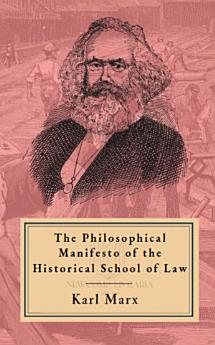The Philosophical Manifesto of the Historical School of Law
About this ebook
Marx mocks the school’s claim to historical depth while showing that its organic conception of law merely sanctifies existing relations of power under the guise of custom and continuity. The essay moves beyond mere rebuttal to identify the political function of legal ideology: the mystification of contingent and class-bound interests as natural, timeless truths. Though written before Marx’s full turn to materialism, the text displays a growing dissatisfaction with philosophical idealism, replacing speculative abstractions with concrete historical inquiry. The manifesto’s tone, both satirical and scholarly, anticipates the critical fusion of history and theory that would define his mature work, where law is not an expression of national spirit but a coded language of domination dressed in the robes of tradition.
This modern Critical Reader’s Edition includes an illuminating afterword tracing Marx’s intellectual relationships with revolutionary thinkers and philosophers (including Hegel, Feuerbach, Engels, and Ricardo), containing unique research into his ideological development and economic-metaphysical theories, a comprehensive timeline of his life and works, a glossary of Marxist terminology, and a detailed index of all of Marx’s writings. This professional translation renders Marx’s dense, dialectical prose into modern language to preserve the original force and precision of the text. Combined with the scholarly amplifying material, this edition is an indispensable exploration of Marx’s classic works and his enduring Hegelian-Protestant influence in the political, religious, economic, and philosophical spheres.










